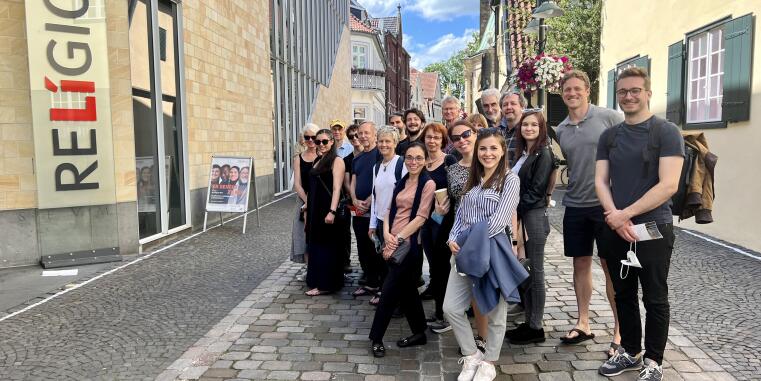



Empirical findings show that institutional religiosity and religious practice have been steadily declining in most European countries (and more recently in the US and Canada, too) since the 1960s. While there is a large body of evidence to suggest that the decline in church religiosity is due mainly to intergenerational change (with one generation being less religious than the previous), there is also a general lack of detailed knowledge about how this change actually happens. In addition, the conditions in which religious and non-religious worldviews are passed on through generations have rarely been the object of international comparative study. The research project “The Transmission of Religion Across Generations: A Comparative International Study of Continuities and Discontinuities in Family Socialization” (10/2019 – 06/2022) addressed these gaps, by focusing on the following three questions: How does the transmission or non-transmission of faith, values and worldviews take place within families and across generations? What are the main factors in the successful (or non-successful) transmission of faith in different cultural contexts? How does religiosity change in the process of transmission? Drawing on quantitative and qualitative data, we used a mixed-methods approach that combines the strengths of both methodological paradigms – the former’s representativeness and generalizability, and the latter’s precise reconstruction of mechanisms and capacity for building typologies. The project was carried out in five countries, which are sufficiently different to each other with regard both to religious landscape, and some other contextual characteristics (e.g. societal factors such as cultural changes or migration): Canada, Finland, Germany, Hungary, and Italy. Our research project aims to understand the transmission of religiosity and non-religiosity across generations in Europe and Canada. In short, we anticipated being able to provide a better explanation of religious change itself, and a more precise theory of religious change across generations.
The follow-up project “Explaining religious change across generations: an international study of religious transmission in families” started on July 1st, 2022. The teams from the five countries will concentrate primarily on the cross-country comparative analyses until June 2024 and combine the qualitative and quantitative analyses (“mixed methods”).
The research project intends to concentrate on the transmission of religion in family socialization and examines both the familial and societal conditions that impinge on the continuity or discontinuity of religious change across generations. The main research questions result from the original project, but have also been expanded and concretized in the course of the analysis:
The research is financed by means of the John Templeton Foundation and will be carried out in cooperation between researchers from the University of Münster (Germany), the University of Eastern Finland, the Pázmány Péter Catholic University Budapest (Hungary), the University of Turino (Italy), and the University of Ottawa (Canada).
The project homepage on OSF contains further information and publications.
The article in “The Well” from April 14, 2023 “Why has every postwar generation since the 1950s become less religious?” contains central results from the project, available under: https://bigthink.com/the-well/postwar-generations-less-religious/.
Contact
Prof. Dr. Christel Gärtner
Cluster of Excellence 'Religion and Politics'
Johannisstr. 1
48143 Münster
Tel.: +49 251 83-23377
Mail: cgaertner@uni-muenster.de